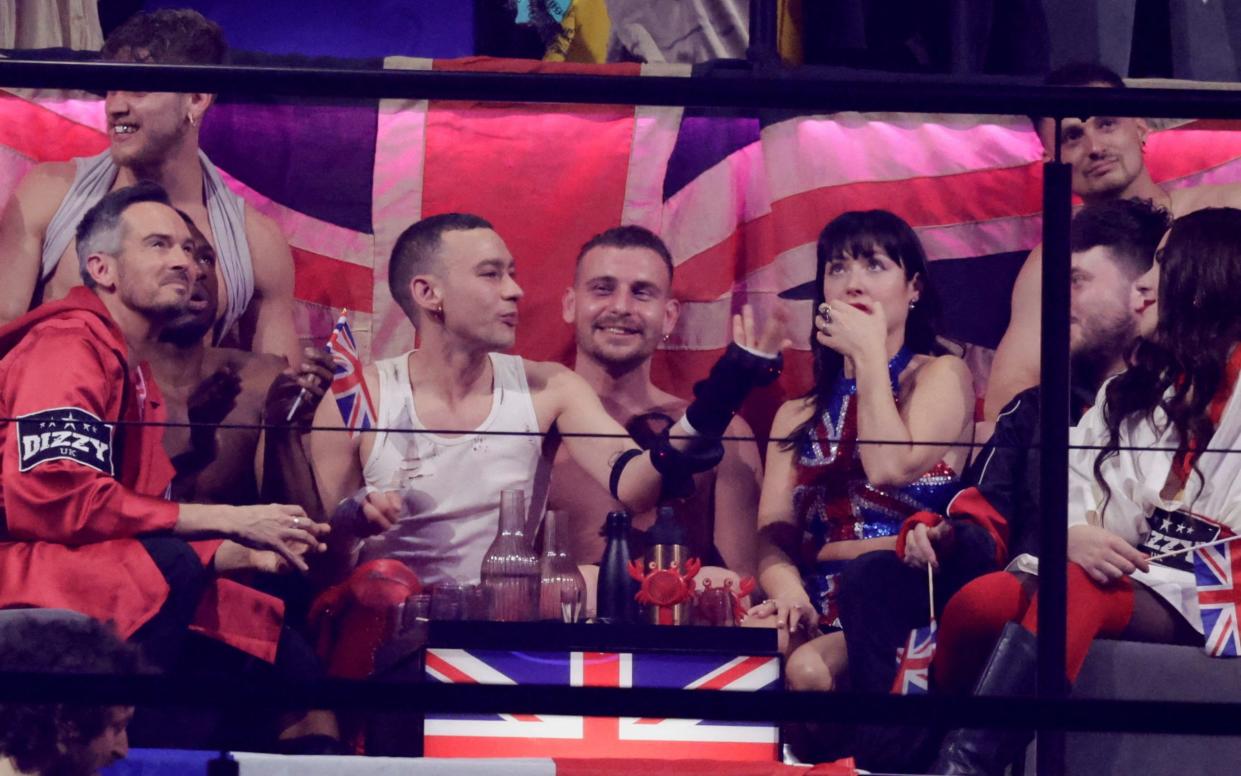What Olly Alexander’s ‘nul points’ Eurovision embarrassment means for his career

It was almost 3:30am when I finally accepted that I would not have a drink with Olly Alexander after Eurovision.
Saturday night’s song contest in Malm? had ended a couple of hours earlier and I was ensconced in a hotel bar in Sweden’s third-largest city. At a party hosted by Loreen, the two-time Swedish winner who triumphed in Liverpool last year, I was expecting to see Britain’s entrant and toast his efforts at the end of a turbulent week.
With just a few minutes before the bar closed, Alexander had still not arrived; I finished my gin and tonic and padded off to bed.
You can understand why Alexander, 33, may not have been in a party mood. The Years & Years singer placed 18th of 25 artists at Eurovision — and suffered the ignominy of being the only act not to get a single point from the viewing public. Reports suggest that he was instead elsewhere in the city with his mum, Vicki, drowning his sorrows into the small hours.
Alexander got a disappointing 46 points from the juries of the 37 competing countries, which makes up half of the overall score; by contrast, Switzerland’s Nemo Mettler topped the judges’ board with a score of 365. Alexander needed his performance to resonate with the estimated 160 million at home watching on TV to have a chance of a strong finish.
It did not. The loudest groans of the night in the 9,000 capacity arena came when it was announced that he had, instead, got the dreaded nul points from the people of Europe. Talk about a hard Brexit.

Things seemed so different just a few months ago. When he was unveiled as the UK’s entrant last December, his selection by the BBC was hailed as a promising sign. Here was a popstar with two number-one albums behind him, popularity in Europe and, unlike many of our recent entries, he was in his prime.
Hopes were raised in some quarters that the 27 years of hurt since Katrina and the Waves triumphed in 1997 could be banished — or at least a creditable top-half finish after Mae Muller was, well, mullered last year. And the hype continued to build a couple of months later, when Alexander released his Pet Shop Boys-influenced synth banger Dizzy.
Why did he take the risk on one of the biggest stages imaginable? “Well, I thought it would be fun,” he said less than two weeks ago. “There is such absurdity and campness… It’s fun. The drama. But also I’m 10 years into my music career and I haven’t had a big hit for a while. I’m not Dua Lipa — I’m not streaming crazy amounts — and this is a route to lots of people hearing your song.
“I think that’s really helpful,” he went on, before changing tense. “I thought that’d be really good for me.” Alexander quickly broke down in tears.
The wheels started to come off well in advance of Alexander’s journey to Sweden. Following Israel’s incursion into Gaza after the October 7 terror attacks – but before he was chosen to represent the UK – Alexander signed an open letter from a gay rights group calling for a ceasefire and accusing Benjamin Netenyahu’s government of “genocide”. That fact caused a brouhaha after Alexander’s selection, but he and the BBC held firm.
Things got more complicated as the Middle East conflict intensified and calls for a pause in fighting got louder. A group called Queers for Palestine urged Alexander to boycott Eurovision over Israel’s involvement and that it amounted to “cultural cover” for an “ongoing genocide”. A week later, at a live Eurovision pre-party in London, Alexander appeared subdued as he sang his song. He later admitted that he was “holed up in a room trying not to have a breakdown” that day — and Alexander never quite seemed to shake that feeling.
There were other missteps along the way. He caused controversy again last week when he said he felt “ambivalent” about the Union Jack – then draped himself in an enormous one during the contest itself.
Olly Alexander is ignoring Palestinian voices, he's calling ethnic cleansing and genocide a """complex situation""" and is actually making himself the victim. He's ruining his reputation to come second to last in Eurovision. He's a disgrace.
— Stephanie ???????? ?????? (@whowaits4luv) May 6, 2024
As if that were not enough, Dizzy did not translate from recorded track to live performance as well as hoped while the staging – in which Alexander and four dancers suggestively gyrate in what appears to be a decrepit communal shower on a spaceship – was too difficult to see in the arena but too provocative for viewers at home.
So how does the star recover from this? Paul Jordan, an academic who got a PhD studying the song contest and is known as “Doctor Eurovision”, says that the damage to Alexander himself should be less than our other Eurovision flops. “He’s already established and has his own career,” Jordan tells me. “It won’t do him any harm.”
Though perhaps not as much good as Alexander hoped. He seems to have alienated everybody: his die-hard liberal fans are disappointed he didn’t speak out about Israel; while mainstream viewers may have been put off by his vow to “fly the flag for the country in the gayest way possible”.
For the third time in four years – Sam Ryder’s excellent Space Man aside – the BBC has to go back to the drawing board before Eurovision rolls into Switzerland. The impact of Alexander’s disappointing result is more likely to have ramifications on Britain’s future Eurovision competitors – and our chances of breaking the decades-long losing streak. “The scoring and zero points will put people off,” says Jordan. “If you are a big act, it is a huge risk if you lose and lose badly.”
